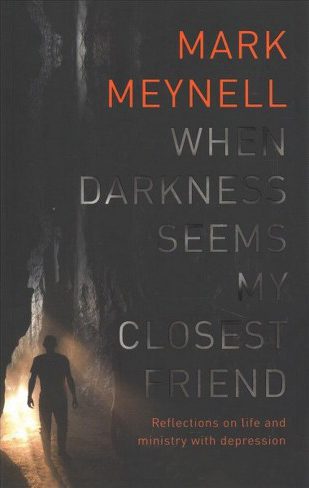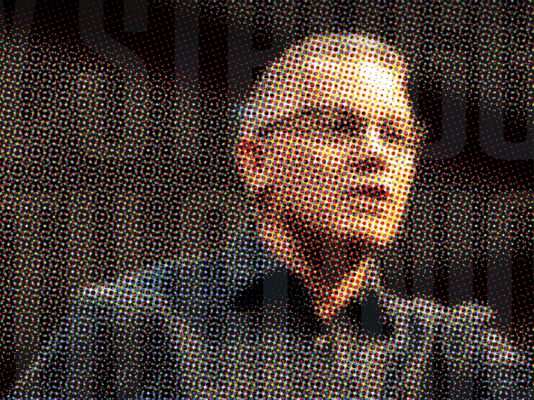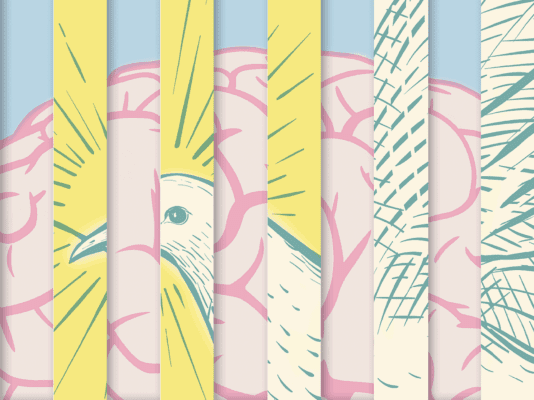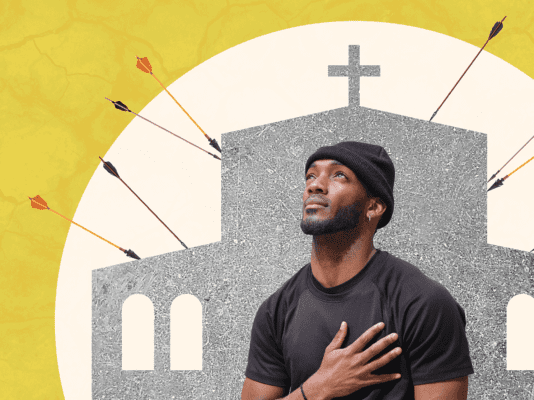I sat on the edge of the bed, tears streaming down my cheeks, shoulders low with suffering. I was, once again, crumpled and bowed by depression. Two months prior to this episode, I watched my mother breath her final breath. Six months before that, I walked through the terminal of the Atlanta airport, blood still fresh on my boots from my tour in Iraq. I saw a lot of people die there.
Although these realities exasperated my depression, they were not the cause of it. I’ve struggled with depression since childhood. Maybe my depression is the result of the horrific abuse I suffered growing up with a drug-addicted mother; maybe it’s the result of a hormone imbalance in my brain; maybe it has something to do with a mosquito-born virus I contracted in the jungles of Peru during my time on the mission field. Maybe it’s all of the above. Or none of the above (169).
I don’t write this review as an expert on mental illness, but as a fellow caretaker of that “black dog” called depression. I’m sure that a pastor who has never experienced deep depression could review this book well enough, but I hope that my experience walking the same dark roads as the author of When Darkness Seems My Closest Friend might allow me to both recognize the potency of his story as well as gently critique it.
When Darkness Seems My Closest Friend (WDSMCF) is a book by Mark Meynell, who is a speaker, trainer, and blogger, as well as director for Langham Preaching, a part of Langham Partnership.
Meynell writes early in the book of his struggles with depression, anxiety, and PTSD. Quite ingeniously, Meynell uses the illustration of a “cave dweller” throughout WDSMCF to paint a picture of his experience with these conditions. The image powerfully pictures what life is like for a sufferer of depression: isolation, darkness, dread, and hopelessness.
As such, WDSMCF is “series of reflections” on Meynell’s experience of suffering life inside the cave of depression in particular, and mental illness in general (xix). One almost wonders if a better title for the book might have been Letters from Inside the Cave; the image is striking.
The aim of the WDSMCF is two-fold: 1) To help Meynell figure out his own experiences in the cave, and; 2) To help others better understand the experience of mental illness. The second aim of the book is where we find its great utility.
Help for those who love the “cave dwellers”
I’m certain that anyone living in the cave of depression and anxiety will find WDSMCF helpful on a number of levels. The breadth of helpful illustrations and analogies alone, for example, allow sufferers to better grasp their own often complex, and confusing, experiences (55, 56, 60, 105-106, 145, 156). But such illustrations may also be incredibly helpful to someone seeking to understand and enter into the suffering of his or her loved ones who may be struggling with mental illness. Meynell’s skill and experience as a preacher seeps through the pores of the pages of WDSMCF as he offers one helpful illustration after another, from the “phantom guilt” of the depressed mind (56) to the previously discussed analogy of the dark, dank cave used to describe the experience of mental illness (145).
Asking the right questions
But there is more help for those who are seeking to serve loved ones struggling with mental illness. Chapter seven offers some thoughtful questions for family and friends struggling to figure out what to ask someone in the throes of depression. Ask them questions like, “Does [God] have a track record of reliability?” and, “Has God revealed himself as sufficiently trustworthy?” (138). As someone who has asked the members of his congregation these same kinds of questions, I can assure you that they are battle-tested and genuinely helpful.
It is not uncommon for friends and family of those suffering with mental illness to find themselves at a loss for words when the time is right to speak. Rather than being like Job’s friends, Meynell offers family and friends a nonexhaustive list of helpful questions to help them communicate with those in the cave:
- What makes it so hard right now?
- What do you wish others understood?
- Are there times of days that are worse than others?
- How might trying to write down some of your experiences help?
These kinds of open-ended questions probe, but they do so gently, leaving the sufferer free to communicate without any undue burden to perform or answer “correctly.” They allow the sufferer to describe, rather than rushing to diagnose or answer as a form of performance (157).
Shame, fear, grace, and the gospel
The best way to care for a person struggling with mental illness is to try and begin to understand the spiritual and emotional realities of their hearts. Meynell is particularly helpful in this regard in his treatment of the difference between shame and fear in chapter five. Meynell has spent a good amount of time reading “a sizeable list of books” on the subject (73) so that the reader doesn’t have to. Family and friends can avoid a stack of books and simply read a short chapter on the matter, freeing them up to spend more time loving and less time reading.
In the same chapter, Meynell excels in showing the reader how a biblically robust understanding of grace is the only true hope for those who wrestle with the black dog trying to escape the leash (66-69, 76). He does a particularly good job of highlighting how grace heals guilt and shame in different ways (85). The kind of counseling that he recommends is shaped by the cross. It’s not an afterthought for those in the cave; it is their only comfort and hope.
A critique and a question(s)
How do you critique someone’s experience? It’s certainly possible, but is it helpful? I’d like to try and shy away from critiquing any aspect or description of the experience of the sufferer, and instead focus on some of the advice given to the sufferer, as well as those who help the cave dwellers.
Unhelpful help
Superlatives can be dangerous. I’m sure Meynell would agree with me. For example: “Depression is always the result of sin.” The superlative nature of that statement renders it unhelpful, particularly because it’s untrue. With that in mind, I was concerned to see Meynell endorse the following statement from writer and actor Stephen Fry: “If you know someone who’s depressed, please resolve never to ask them why” [emphasis mine, 158]. Never?
This tiny critique may seem nitpicky, but the language that Meynell uses in support of the quote is strong. He says that Fry is “absolutely right.” I’m not sure that I agree. While there may be times when the depressed person is so lost in the blackness of the cave that to ask such a question would not only be unhelpful, but also cruel, there are other times when asking “why” might be the correct thing to do. What if someone is depressed because of some hidden sin that they refuse to deal with? What if there is some physiological issue that should be addressed? As someone who has experienced these exact situations play out in counseling, I can assure you that there is indeed a time to ask why.
Unanswered questions
Meynell is not afraid to talk about how the church, in general, and Christians, in particular, have failed those who live in the cave. After finishing WDSMCF, I felt compelled to ask, “What has the church done right?” Aside from a single paragraph (145), Meynell doesn’t have much to say about the role of the church in the life of the cave dweller. This is, in my mind, one of the greatest weaknesses of the book.
Maybe I’m biased because I’m a local church pastor, but I am genuinely surprised that Meynell, a former pastor himself, doesn’t have more to say about this. He says that, “more than anything in the world, loved ones are the key to survival” for the cave dweller (152). I agree. And outside of the nuclear family, if you have an intact one, the local church is where we should feel most loved. Often times our brothers and sisters in the church are closer to us than our wives, parents, or even children (Mark 3:33-35).
Final question
Meynell asks the question, in so many words, if a man with severe and/or chronic anxiety and depression is fit for pastoral ministry (165). The question of fitness for gospel labor seems framed in the language of general “ministry” early in the discussion (149), but then transitions clearly into a discussion about the pastorate in particular (150, 165, 167).
So, “how might we understand the relationship between the pastor and the black dog?” Meynell doesn’t give a direct answer. Half jokingly, he wonders if “mental health challenges” should be a prerequisite for the ministry. After all, “it is not so different from employing an amputee or someone allergic to gluten” (166). Colleagues should simply make adjustments and allowances, “just as should always be the case when appointing someone different from the team’s majority culture.”
I’m not so sure I agree.
Meynell himself admits, just a paragraph later, that he finally reached a “point of no return” in his own ministry experience. When it comes to the question, “Should a church appoint someone with mental health challenges to their staff?” (165), he offers no final verdict, and perhaps muddies the waters of the matter along the way.
Much of the Meynell’s discussion about whether or not someone with “chronic mental illness” (169) can serve in pastoral ministry focuses on how mental illness might affect the work culture of the ministry. Team culture, colleagues, and job descriptions are the words that stuck out to me. But what about the sheep? That’s my main concern.
A shepherd is supposed to care for his sheep. That’s the whole reason God appoints men to the work of shepherding (Acts 20:28). Can a person who is perpetually wrestling with severe bouts of anxiety and depression (i.e. chronic mental illness) adequately care for the flock? I think the answer is no.
That’s not to say that our “own experiences of pain [can’t] help someone” else in theirs (172). Of course they can! I have no doubt that struggles with depression can make someone “a better pastor” (173). I agree that “no pastor is perfect.” And I also believe that we need more pastors who are willing to be weak (177). But is there a point where the shepherd must lay down his crook and enter into the fold with the rest of the sheep to be cared for, if only for a time?
Perhaps the day may come when I find myself wondering if my own black dog has led me down a path that moves me away from ministry. Maybe on that day I’ll look back on this question and answer it differently.
Conclusion
WDSMCF is a good resource to offer someone who wants to know what it’s like to live in the cave. I’ll be keeping a few extra copies on hand for such an occasion. I’m thankful that Meynell has opened the windows of his experience for me to learn from, and I look forward to the day when the Lord Jesus finally pulls us out of the cave forever.









